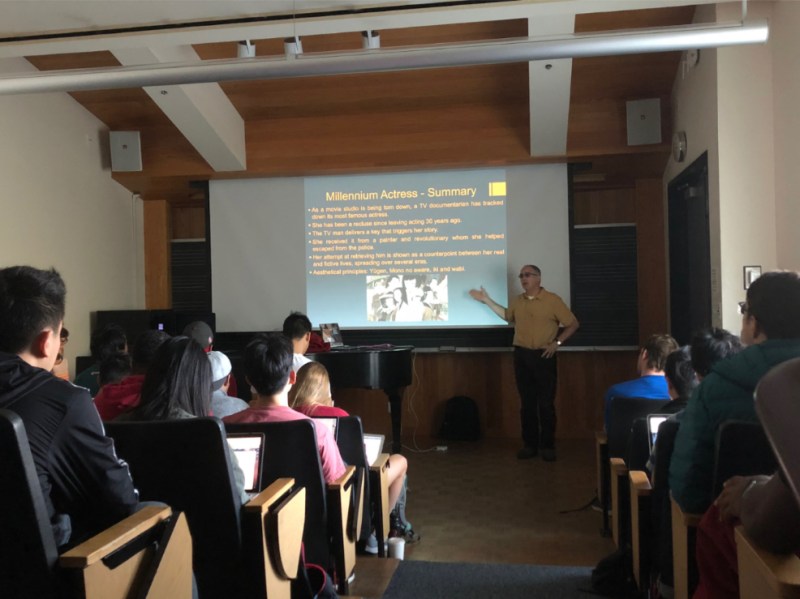MUSIC 25: “Decoding Anime” explores the eponymous Japanese animation style through a multimedia analytical framework focused on four major components: narrative, sound and music, images and Japanese aesthetics. Taught by music senior lecturer Francois Rose, the course provides students with a new lens through which to view anime and Japanese culture.
Throughout the course, students read about Japanese aesthetics in anime and discuss a variety of anime excerpts from different genres and time periods. As a final project, students split into groups and analyze an excerpt from an anime using the four analysis techniques.
“There’s so much embedded in the clips that he’s showing,” said course teaching assistant Julie Herndon. “The more you look at it, you see that there’s layers and layers of meaning that have been encoded into it.”
The course originated from Rose’s research on a type of Japanese musical drama known as Noh theatre. Noting that previous research on this traditional art form generally focused on its individual parts — such as on a single instrument — Rose and his colleagues decided to instead study it as a whole, analyzing how music, stage, narrative and costumes worked together in the medium. Around the same time, Rose began to watch anime as a way to relax, and found himself applying a similar analytical lens.
“What happened is, even without me noticing, I did the same thing that we do in Noh [with anime],” Rose said. “When I listen to anime, I listen for the music, I listen for the treatment of color, I look at the treatment of the narrative, I look at Japanese aesthetics — how is that all working together — so that I can have a better understanding.”
Rose often uses the phrase “listen to anime” to emphasize the auditory element of the anime-consumption experience. Subverting the conventional perception of anime as primarily visual entertainment, Rose’s course helps students develop a deeper understanding of the form’s various aspects.
“[Rose’s] passion for anime and music and Japanese culture is very amazing,” said Heidi Goh ’19, a student in the class. “He’s very knowledgeable about [the course material] and he shares it during his lectures.”
By teaching students to dissect and explain how the various elements of anime work together, Rose hopes to help them attain a deeper and more multifaceted understanding of the medium as an art form. He believes that anime can help people better understand Japanese culture as well, through not only the content but also the aesthetics.
“Usually … we listen for the story … [and] the combined effect,” Rose said. “But when you are able to sharpen your sensitivity toward music, toward the image, toward culture, then the appreciation is more profound.”
Rose said that there are also some other sides of anime that he wishes he could explore in the course, such as several series that tackle deeper issues head-on. One, titled “Koi Kaze,” follows a love story between two siblings who were raised separately, while another, titled “Hourou Musuko” (Wandering Son) explores gender identity through a story about two students in a high school class who would each like to be a different gender.
“It tells me something about Japanese culture, that they can… have an anime on serious topics like that,” Rose said. “That touched me a lot.”
Rose also said there are many elements of anime waiting to be discovered, even by viewers without extensive prior knowledge of the form. He values the freedom that the class allows in creating an environment where students can explore new areas and ideas beyond the limits of traditional academic processes or guidelines.
“When I do music, music is my field, so there is almost no compromise,” he said. “When I do anime, it’s a joy.”
Contact Emily Wan at emilywan ‘at’ stanford.edu.
